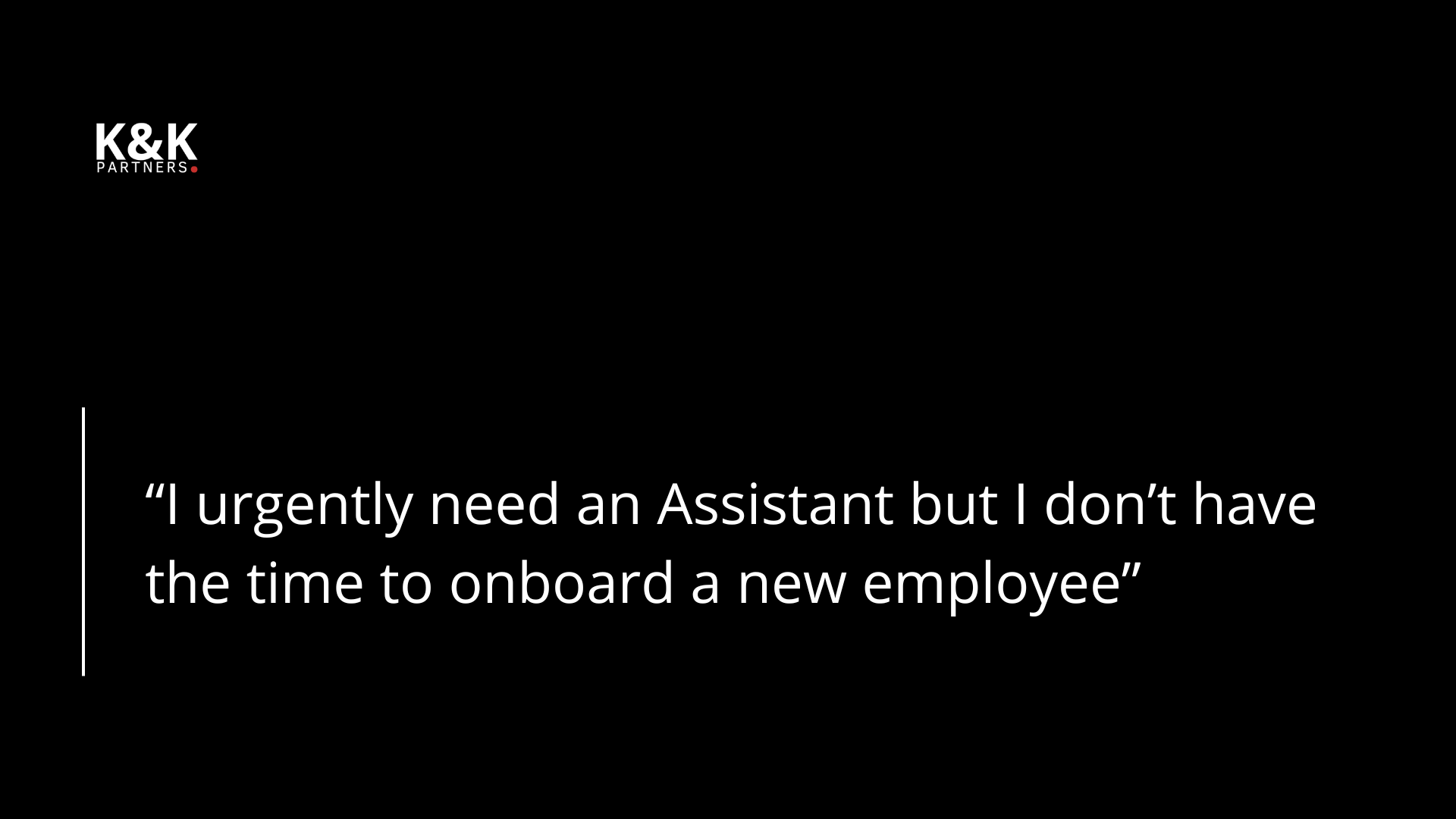I’ve heard this twice in the last few days.
There comes a pivotal moment in every successful executive’s career when they transition from managing everything on their own to leveraging the skills of an Executive Assistant (EA).
Well, no secret here: you’ll have to make time for them.
If you don’t know where and how to start, let me share a few tips that will help you maximize your working relationship.
Before:
Before having an Executive Assistant, executives juggle numerous responsibilities: managing email, calendars, contacts, to-do lists, balancing personal and work commitments, and handling travel arrangements such as flights, hotels, and conference registrations. Successfully managing this workload while driving business forward signals to higher-ups that an executive is ready for the next level, which often includes an Executive Assistant.
This promotion is a significant achievement, signaling to others within and outside the organization that the executive has ‘made it’. Initially, many executives envision a life of ease, with their assistant handling the chaos. However, this vision requires firsthand adjustments.
After Phase
Are you in a Senior, Managing or C-Suite position that comes with an Executive Assistant? Or are you an executive who feels you’re not fully benefiting from your current assistant?
Let me share a few tips with you.
First, recognize the title: Executive Assistant, not Secretary.
This distinction is crucial. Most EAs are highly educated and tech-savvy. They do much more than answer phones and schedule meetings. Viewing them as a Business Partner will enable them to anticipate your needs and become a valuable advisor.
Make proper introductions
Send an introductory email to colleagues, external contacts, friends, and family, signalling your trust in your Executive Assistant to handle all logistical and business matters.
CC your EA on emails
Copy your assistant on all emails that do not contain sensitive information. This keeps them informed, creates a sense of partnership, and shows others that you value and respect your assistant.
Delegate!
End your emails with: “xxx is my Executive Assistant and is cc’d here to help with any logistics and information flow.” This reduces email clutter in your inbox.
Resist the urge to do it yourself!
Although it may seem quicker to do tasks yourself initially, taking the time to explain tasks to your assistant will pay off. Once they are familiar with your preferences, they will save you significant time.
Communicate your preferences clearly
If your Assistant does something incorrectly or not to your liking, address it immediately. Clear communication will prevent future issues and improve your working relationship.
Understand that mistakes happen
Everyone makes mistakes. A good EA will learn from errors and strive to avoid repeating them. Open and honest communication is key to overcoming these hurdles.
Give.Them.The.Time.They. Deserve.
While email, Teams messages, and texting are useful, nothing beats direct communication. Regular in-person, video, or phone meetings allow your assistant to ask specific questions, understand your priorities, and build a strong working relationship.
Use their past experience
Your Executive Assistant has likely supported other principals before you or have another prior experience in another field before working with you (I’ll share my personal story in another article) . Please, leverage their previous experiences and insights to benefit from their creative solutions and ideas!
Confidentiality is key
Professional Executive Assistants understand the importance of confidentiality. Establish clear guidelines from the start about who can access your information to avoid misunderstandings.
Don’t hesitate to ask for help
If you’re in a bind, don’t be afraid to ask your assistant for a favor. This can deepen your working relationship and show that you trust them to support you in critical situations.
Allow your Assistant to take the fall
In some cases, your Assistant can take the blame for a scheduling error or other minor issue to help you save face. This fosters a strong partnership where your assistant feels valued and trusted.
The tips above are based on my own experience in the field of Executive Assistance.
Building a strong, trusting relationship with your Executive Assistant will enable you to see them as a Business Partner, Chief of Staff or Project Manager.
A good EA will become the force multiplier you’ve always needed.
When working with K&K Partners., we make sure you EA can start contributing effectively right away. You can trust us for that.
But combined with these tips, this approach will help you leverage your EA to their fullest potential.
Nelly Kasongo
K&K Partners



Comments are closed